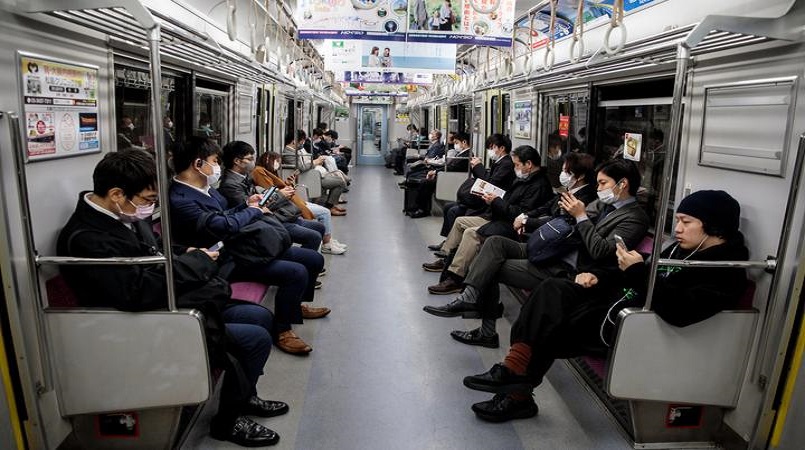
Japan is lifting its state of emergency in Tokyo and other areas, while the Nikkei reported a Covid-19 economic stimulus plan worth almost $1 trillion.
Social distancing curbs were loosened for most of the country on 14 May as new infections fell, but the government had kept Tokyo and four other prefectures under watch.
Japan's economy minister told reporters on Monday local time the government had received approval from key advisers to remove the state of emergency for all remaining regions.
It would be the first time the country has been completely free from the state of emergency since it was first declared a month and a half ago.
"While the emergency state will be lifted, it is important to expand economic activity in stages as we establish a new way of living," Yasutoshi Nishimura said. He added that the head of the advisory panel had recommended close monitoring of Tokyo, Kanagawa and Hokkaido prefectures, where cases had fluctuated.
The world's third-largest economy has escaped an explosive outbreak with some 17,000 infections and 825 deaths so far; however, the epidemic has tipped it into a recession and plunged Prime Minister Shinzo Abe's popularity to multi-year lows.
An Asahi newspaper poll conducted at the weekend showed Abe's support rate at 29 percent - the lowest since he returned to power in late 2012 - and disapproval at 52 percent. The results mirrored a Mainichi newspaper survey published on Saturday.
Abe will hold a news conference at 6pm (9pm NZT), followed by a government task force meeting. The lifting of the state of emergency takes effect after the meeting.
Tokyo Governor Yuriko Koike has previously said the capital would move into 'stage one' of loosening restrictions, once the state of emergency was removed. That would allow libraries and museums to reopen, and restaurants to stay open until later in the evening. Subsequent stages would see theatres, cinemas and fairgrounds reopen.
